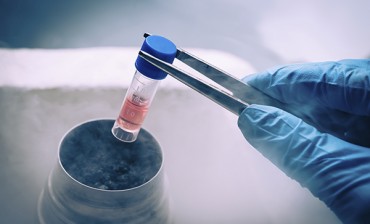Fertility preservation is of particular significance for any trans young person embarking upon a treatment programme which may compromise their fertility. Any consideration of hormone or other treatment must include the fact that egg or sperm quality might be impaired irreparably.
In many cases treatment is life-saving as well as life-enhancing and, as with anyone facing life-saving treatment, all options need to be explored. To date the only option for almost all trans young people for fertility preservation has been a privately-paid route, usually funded by parents. Although NHS medical pathways have led directly to impaired fertility, NHS Trusts have not always responded equally to the trans population for preserving fertility in the way they have other patients.
There has been little cohesive policy between NHS Trusts in the area of fertility preservation including the retrieval and storage of gametes (eggs and sperm). This policy area rests with Clinical Commissioning Groups (CCGs) rather than with NHS England as an umbrella body.
In May 2019, NHS England published guidance for Clinical Commissioning Groups which perhaps might pave the way to clearer coherent practice across the country. It is likely that the guidance has been released as a result of potential challenges being considered by the EHRC to fight for trans equality. The guidance is directed at fertility preservation services in circumstances where an individual may be rendered infertile as a consequence of medical treatment. This therefore covers the whole range of circumstances from cancer treatment through to hormone treatment for transgender patients.
This is particularly significant for young trans people. Whilst the policy makes no direct reference to the young trans population they are by implication a significant group of patients affected by the guidance.
Funding gamete storage by Clinical Commissioning Groups is of course a matter for local discussion and decision but we are pleased that the guidance makes it clear that decisions about individual access to treatment must be made on the basis of a clear policy and that trans people must be treated equally to other patients.
The Guidance makes specific reference to the Equality Act 2010 and to have due regard to:
- Eliminating discrimination, harassment, victimisation and any other conduct that is prohibited under that Act
- Advancing equality of opportunity between persons who share relevant protected characteristics and those who do not share it
- Fostering good relations between persons who share a relevant protected characteristic and persons who do not share it.
The guidance expressly states that all patients whose medical treatment may compromise fertility should be in the contemplation of Clinical Commissioning Groups when developing or reviewing a local policy. Given the legal duties set out, Clinical Commissioning Groups must not determine which patients might be offered preservation services on a basis which discriminates against patients because of a protected characteristic, including gender reassignment.
In reality the guidance simply states the law as it stands but it clearly reiterates and reinforces the starting point for all Trusts. To date Clinical Commissioning Groups have been clear in their commitment to assist say cancer patients whilst trans patients have struggled to access gamete preservation services under the NHS. There should be no such discrimination.
Naturally the needs of different local areas will influence policy, taking into account a variety of factors including local resources but it is good to see a clear recognition of all patients’ needs in this area and also clear guidance against which refusal to permit storage under NHS policy might be able to be more clearly challenged.
Leading experts in conception law
Find out more about how we support those creating families



